Social Equality
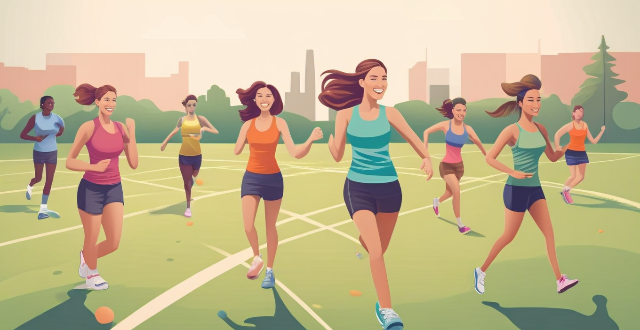
Can sports be used as a tool for breaking down social barriers and promoting equality ?
The power of sports to bring people together and foster a sense of community is undeniable. However, the question remains: can sports be effectively utilized as a tool for breaking down social barriers and promoting equality? Sports organizations are increasingly recognizing the importance of diversity both on the field and off. By actively recruiting athletes from different backgrounds, sports can serve as a visible symbol of inclusion. Through exposure to diverse teams and athletes, sports can help dispel stereotypes and prejudices, encouraging fans and participants alike to appreciate the unique talents and contributions of individuals regardless of their background. Participation in sports teaches valuable life skills such as teamwork, discipline, and perseverance, which can be instrumental in overcoming social barriers. Success in sports can empower individuals, particularly women and minorities, by providing a platform for them to showcase their abilities and achieve recognition. Major sporting events can stimulate local economies by creating jobs and promoting tourism. Investments in sports facilities can revitalize neglected areas, providing much-needed resources and encouraging further development. Grassroots sports programs can engage community members, fostering a sense of belonging and pride that extends beyond the playing field. Unequal distribution of resources can hinder the ability of some communities to fully participate in sports. Physical accessibility for athletes with disabilities remains a crucial issue that needs to be addressed comprehensively. Ensuring equal opportunities and treatment for female athletes continues to be a focal point in the fight for equality in sports. Efforts to promote diversity must be genuine and avoid tokenism, ensuring that all participants feel valued and respected. Organizations must continuously assess their progress toward inclusivity and make necessary adjustments to maintain effectiveness. Educating stakeholders about the importance of inclusivity and equity is essential for maintaining momentum and driving change.
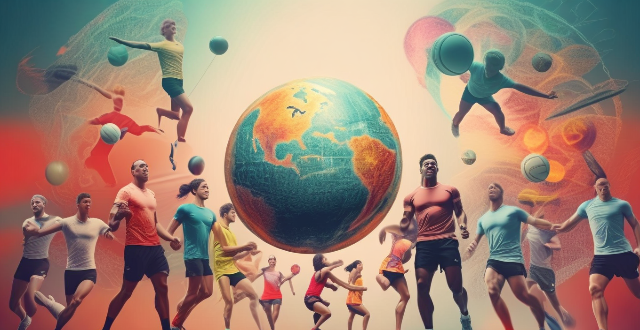
To what extent does the globalization of sports contribute to social equality and inclusion ?
The globalization of sports has led to increased opportunities for athletes from different backgrounds and cultures, but also poses challenges to social equality and inclusion. Efforts are needed to address these challenges and promote fairness, inclusivity, and respect for all athletes.

How has sports contributed to gender equality ?
Sports have contributed to gender equality by increasing participation, equal pay, media coverage, and female leadership in sports administration.

How can multicultural education promote social justice and equality ?
The text discusses the role of multicultural education in promoting social justice and equality. It emphasizes that this approach helps in recognizing and valuing differences among individuals, encouraging open-mindedness, addressing stereotypes and prejudices, providing equal opportunities, enhancing intercultural understanding, and preparing students for global citizenship. Overall, multicultural education contributes to creating a more equitable and harmonious society by fostering inclusivity and breaking down barriers.

How does gender equality affect participation in competitive sports ?
Gender equality is a fundamental human right that ensures individuals are not discriminated against based on their sex. In the realm of competitive sports, gender equality can significantly influence participation rates, access to resources, and overall opportunities for athletes. This discussion will explore how gender equality affects participation in competitive sports. The importance of gender equality in sports includes equal opportunities, media coverage and representation, financial support and sponsorship, and safety and well-being. Challenges faced due to lack of gender equality include unequal participation rates, limited career opportunities, and cultural barriers. Strategies to promote gender equality in sports include policy changes, education and awareness, and supportive infrastructure development. In conclusion, gender equality plays a crucial role in determining participation rates in competitive sports. By addressing issues such as unequal opportunities, media representation, financial support, safety concerns, and cultural barriers, we can create a more inclusive environment that encourages females to engage actively in sports. Through policy changes, educational initiatives, and supportive infrastructure development, we can promote gender equality within the world of competitive sports, ensuring that talent and passion are the only determining factors for success.
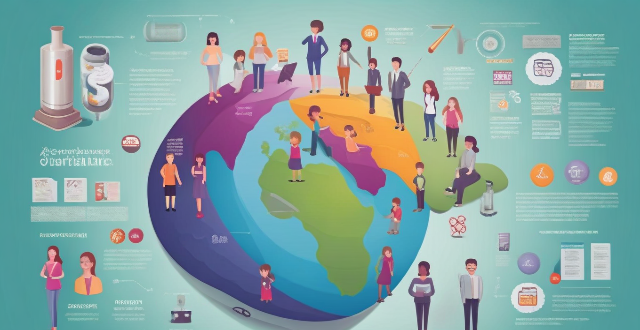
How have women's empowerment initiatives affected gender equality globally ?
The essay discusses the impact of women's empowerment initiatives on gender equality globally. The initiatives have increased access to education and training for women, leading to their active participation in public life. They have also provided economic empowerment through financial resources, microfinance loans, and entrepreneurship training programs, resulting in greater gender equality in the workplace. Health and reproductive rights have been improved through awareness campaigns and advocacy for policies supporting family planning and contraception. Finally, these initiatives have encouraged women's political participation, creating a more diverse and representative government. Overall, women's empowerment initiatives have played a crucial role in promoting gender equality worldwide.

What is the role of gender equality in achieving climate justice and sustainability ?
Gender equality is a key component in achieving climate justice and sustainability. It ensures equal opportunities for all individuals to participate in decision-making processes related to climate change mitigation and adaptation strategies, including access to education, healthcare, and economic resources. Gender equality recognizes the vulnerabilities of women and girls affected by climate change, promotes inclusivity, enhances resilience, drives innovation, and addresses intersectionality. Strategies for achieving gender equality in climate action include incorporating gender perspectives into policies, increasing representation, providing resources, encouraging collaboration, monitoring progress, educating stakeholders, advocating for legal protections, promoting cultural change, supporting research, and sharing best practices.

In what ways can we promote gender equality in sports for young children ?
Gender equality in sports is crucial for fairness and respect, especially among young children. To promote this, mixed-gender teams should be encouraged, equal opportunities provided, non-binary athletes supported, coaches and parents educated about gender equality, diversity celebrated, gender bias addressed, and safe spaces created for all athletes.

What role do sports organizations play in promoting gender equality within their leagues or competitions ?
Sports organizations have a crucial role to play in promoting gender equality within their leagues or competitions. They can ensure that all athletes, regardless of their gender, have equal opportunities to participate and succeed in sports through various measures such as ensuring equal representation, providing equal pay and prize money, creating safe and inclusive environments, promoting female athletes as role models, and offering educational programs and workshops focused on gender equality in sports. By implementing these measures, sports organizations can create a culture of respect and inclusivity while ensuring that all athletes have equal opportunities to participate and succeed in sports.

How can we use sports to promote gender equality and empower women and girls ?
Promoting gender equality and empowering women and girls through sports involves increasing visibility, ensuring fair representation, improving access and inclusivity, providing education and training, implementing policy and legislation, promoting health and wellness, encouraging economic empowerment, engaging the community, and fostering cultural change. These efforts aim to break down barriers, challenge stereotypes, and create opportunities for women and girls to thrive both on and off the field.

What are the key factors that contribute to social harmony ?
Social harmony is a state of peaceful coexistence and cooperation among individuals, groups, and communities within a society. Key factors contributing to social harmony include respect for diversity, communication and dialogue, education and awareness, equality and fairness, law and order, civic participation and volunteerism, and economic stability and prosperity. By promoting these factors, societies can create a more peaceful and cooperative environment where everyone can thrive.

How does educational equity relate to social justice ?
Educational equity and social justice are interconnected concepts that aim to create a fair and just society. Educational equity involves providing equal opportunities for learning and addressing disparities in resources, funding, and support services between schools or communities. Social justice encompasses policies and practices that ensure everyone has equal rights, opportunities, and access to resources while eliminating discrimination based on various factors. The relationship between educational equity and social justice includes addressing systemic inequalities within the education system, providing access to quality education for all students, promoting diversity and inclusion, and empowering students to become agents of change in their communities. By achieving educational equity, we can work towards creating a more just and equitable society.

How can celebrities use their influence for social change ?
Celebrities have a unique opportunity to use their influence for social change. They can leverage their fame and platform to bring attention to important issues, inspire their fans to take action, and make a positive impact on the world. Celebrities can use their platform to raise awareness about important social issues, inspire their fans to take action by sharing their own experiences and stories related to social issues, partner with organizations that are working towards social change, use their talents and skills to support social change initiatives, and advocate for policy changes at the local, national, or international level. By doing so, celebrities can help shape laws and regulations that promote social justice and equality.

What is the relationship between cultural fusion and social acceptance ?
The text discusses the interplay between cultural fusion and social acceptance, two significant phenomena that shape modern societies. Cultural fusion is defined as the process where different cultures interact, leading to new cultural forms, while social acceptance refers to the degree of support for diversity within a society. The text outlines key points for each concept: diversity, innovation, and interconnectedness for cultural fusion; tolerance, empathy, and equality for social acceptance. It then explores their interaction, suggesting that cultural fusion can promote social acceptance by increasing exposure to different cultures, breaking down stereotypes, and promoting tolerance. Conversely, high levels of social acceptance can foster further cultural exchange and innovation. The conclusion emphasizes the cyclical relationship between the two concepts and their importance in building harmonious societies that embrace diversity and change.

What are the benefits of social inclusion for individuals and society as a whole ?
Social inclusion benefits individuals and society by promoting equality, diversity, and participation. Individuals experience enhanced quality of life, greater opportunities, improved mental health, increased self-esteem, and strengthened social support networks. Society benefits from economic growth, reduced poverty and inequality, improved public services, enhanced social cohesion, increased civic engagement, promotion of human rights, a positive global image, and intergenerational equity.

How does climate change affect gender equality ?
The text discusses the impact of climate change on gender equality, highlighting increased vulnerabilities for women in health, economics, and social factors. It further points out how climate change exacerbates existing inequalities through gender-based violence and educational setbacks. However, it also identifies opportunities for resilience and empowerment through resilient livelihoods, enhanced participation, and improved health and safety measures. The conclusion emphasizes the importance of addressing climate change with a gender lens to achieve sustainable development and a more equitable future.

Can sports be used as a tool for social change and community development ?
This text discusses the potential of sports as a tool for social change and community development. It highlights how sports can break down barriers, promote health and well-being, and contribute to education and personal development. The article also explores how sports can address social issues, empower communities economically, and promote peace and reconciliation. However, it emphasizes the need for equitable resource allocation, accessibility, and sustainability to fully realize the potential of sports in societal transformation.

What role does sports culture play in promoting gender equality ?
Sports culture has a significant impact on promoting gender equality by providing equal opportunities for participation, challenging stereotypes, and building inclusive communities. It empowers individuals through participation, leading to increased self-confidence and a sense of accomplishment. By recognizing and celebrating diverse representations of gender, sports culture can help to break down barriers and promote greater acceptance and respect for all individuals.

What is social inclusion and why is it important ?
Social inclusion refers to the process of ensuring that all individuals can participate in all aspects of society. It aims to create a society where everyone feels valued, regardless of their background. Key elements include equal opportunities, non-discrimination, participation, empowerment, and solidarity. Social inclusion is important for promoting equity and fairness, enhancing economic growth, improving health and well-being, reducing poverty and exclusion, enhancing social cohesion, and supporting sustainable development.

What are the current trends in fundraising for women's rights and empowerment initiatives ?
Fundraising for women's rights and empowerment initiatives is gaining momentum, driven by various stakeholders. Corporate social responsibility programs focus on education, microfinance, and mentorship for women. Philanthropic foundations like the Gates and Ford Foundations invest in health, economic empowerment, and leadership projects. Crowdfunding platforms such as Kickstarter and GoFundMe enable individuals to support causes like legal fees for victims of harassment. Government grants from the US and EU fund reproductive health and gender equality projects. These efforts are crucial for promoting gender equality and ensuring equal opportunities for all.

What are the current global challenges in achieving gender equality in education ?
Gender equality in education is a fundamental human right and key to economic growth, social development, and poverty reduction. However, several challenges hinder its achievement globally. One major challenge is the lack of access to education for girls due to poverty, cultural beliefs, and traditional roles assigned by society. Another challenge is gender bias in curriculum and teaching methods that lead to a lack of representation and role models for girls while perpetuating harmful stereotypes about gender roles. Sexual harassment and violence against girls in schools also hinder gender equality in education by creating an unsafe learning environment that can lead to low self-esteem, anxiety, depression, and dropping out of school altogether. Insufficient funding for girls' education prevents schools from providing proper facilities, materials, or trained teachers needed to support girls' learning. Addressing these challenges requires policy changes, increased funding, improved curriculum design, teacher training programs, and awareness campaigns targeting both parents and communities.

What are some successful examples of integrating gender equality into climate change initiatives ?
Integrating gender equality into climate change initiatives is crucial for achieving sustainable development and ensuring that everyone benefits from environmental protection measures. Successful examples include promoting women's participation in decision-making, incorporating gender perspectives into policies and programs, supporting women-led climate action initiatives, and addressing gender-based violence in climate displacement. These efforts not only promote social justice but also enhance the effectiveness of climate actions by harnessing the strengths and contributions of all individuals, regardless of their gender.

What are some successful examples of promoting social harmony globally ?
Successful Examples of Promoting Social Harmony Globally: UN, EU, AU, ASEAN

What policies or initiatives have been implemented to ensure equal pay and opportunities for both men and women in professional sports ?
In recent years, there has been a growing movement to ensure equal pay and opportunities for both men and women in professional sports. This has led to the implementation of various policies and initiatives aimed at achieving gender equality in sports, including gender equality laws and regulations, collective bargaining agreements (CBAs), wage transparency policies, gender quotas and targets, gender equality initiatives and programs, and improved media coverage and representation of women's sports. While progress has been made towards ensuring equal pay and opportunities for both men and women in professional sports, there is still much work to be done. By continuing to implement policies and initiatives that promote gender equality, sports organizations can create a more inclusive environment where all athletes can thrive regardless of their gender.

What policies can low-income countries implement to promote gender equality and women's empowerment ?
This article discusses various policies that low-income countries can implement to promote gender equality and women's empowerment. It highlights the importance of education, healthcare, economic development, legal protections, and cultural norms in achieving these goals. The article suggests policies such as equal access to quality education, vocational training programs, reproductive health services, microfinance programs, non-discriminatory hiring practices, protection from violence, property rights, positive media representation, and community mobilization. By implementing these policies, low-income countries can create a more inclusive and equitable world for all genders.

How can companies promote gender equality in the workplace ?
In full: Companies can promote gender equality in the workplace by implementing gender-neutral hiring practices, providing equal opportunities for advancement, ensuring equitable pay and benefits, fostering an inclusive culture, addressing harassment and discrimination, supporting women in non-traditional roles, and celebrating achievements and diversity.
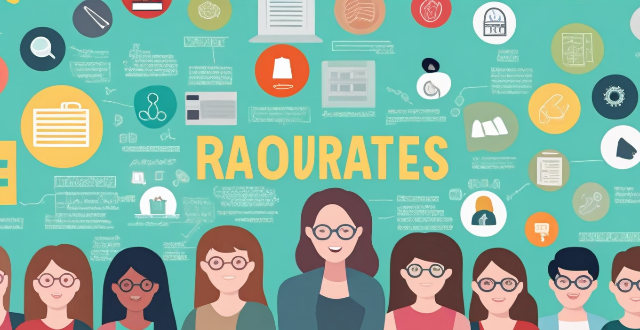
How has technology influenced women's empowerment and rights ?
The text discusses the impact of technology on women's empowerment and rights, highlighting various areas such as education, economic participation, health, social activism, and policy influence. It emphasizes how online learning platforms, e-commerce, telemedicine, social media, and digital security tools have transformed opportunities for women. Furthermore, it underscores the importance of leveraging technology to promote gender equality and women's rights globally.

What role do women play in addressing climate change ?
Women's Role in Addressing Climate Change: Women play a crucial role in addressing climate change through leadership and advocacy, innovative solutions, community engagement and education, and promoting gender equality and climate justice. They have led international negotiations, founded organizations dedicated to climate action, developed new technologies and business models, engaged in activities such as tree planting and waste reduction, and advocated for gender equality in decision-making processes. Women's contributions are essential to achieving a sustainable future for all.
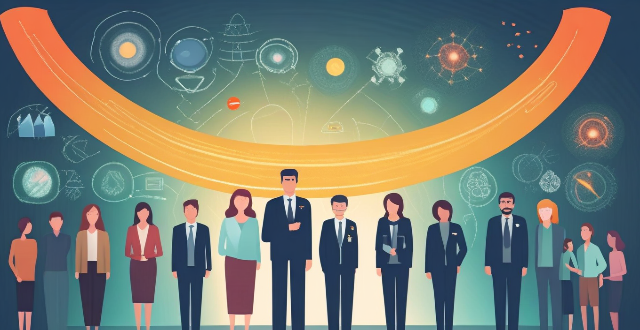
How can we promote gender equality in climate policy making ?
Promoting gender equality in climate policy making is crucial for ensuring inclusive policies that address the needs of all genders and harness the potential of everyone in combating climate change. Key strategies include ensuring equal representation of men and women at all levels of decision-making, addressing gender-specific impacts of climate change, promoting education and training, collaborating with women's organizations, and creating safe spaces for open expression. By implementing these measures, we can move towards more effective and equitable solutions to tackle climate change.

How does social inclusion relate to diversity and multiculturalism ?
The article discusses the relationship between social inclusion, diversity, and multiculturalism. It defines each concept and explains their importance in promoting equality, participation, and belonging. The article also highlights the benefits of diversity and multiculturalism, such as enhanced creativity and understanding among different cultural groups. The intersectionality of these concepts is explored, along with examples of inclusive policies and practices. Education is emphasized as a crucial tool for promoting social inclusion, diversity, and multiculturalism. Overall, the article concludes that these interconnected concepts are essential for building a more equitable and harmonious society.